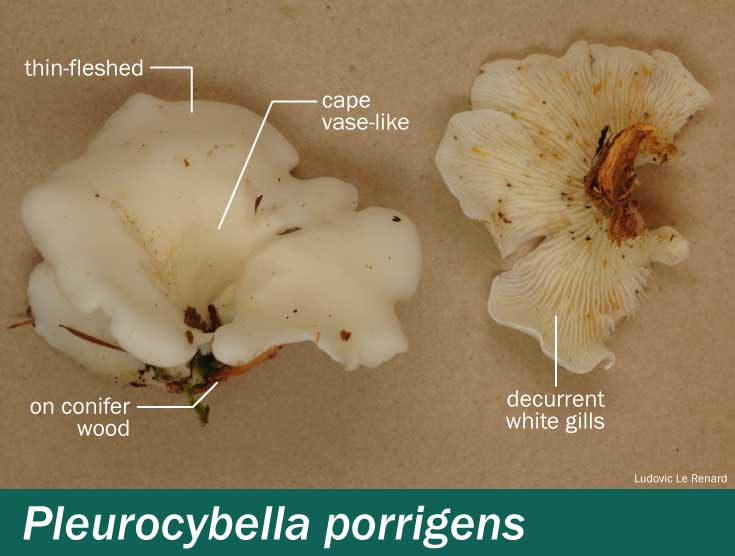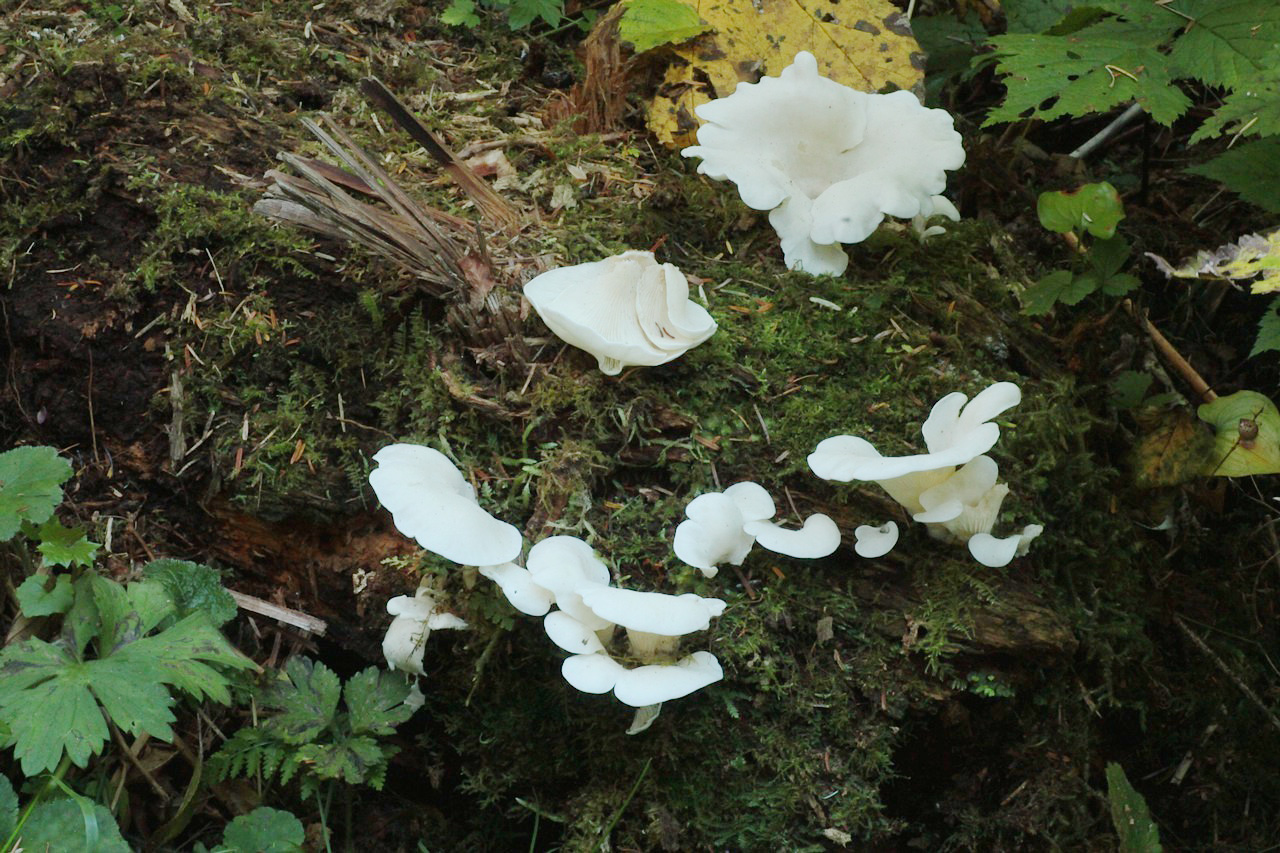Pleurocybella porrigens — Angel wings
Odour: Indistinct
Cap: 1.5–10 cm in diameter, shape vase-like and open on one side, tongue-like, or ear-shaped. May be fan-shaped when growing on the side of a log. Caps gradually narrow towards the base. The cap is white to ivory, thin-fleshed and translucent. The surface is smooth. The flesh is pliable. As caps expand sideways, consistent with their common name, they sometimes look like angel wings.
Gills: Rather crowded, narrow, and covering the entire under surface of the mushroom, white.
Stem: Virtually absent.
Ring or veil: None.
Cup: None.
Spores: 5–7.5 x 4–6 µm, smooth.
Habitat: Often in troops and clusters, on coniferous wood, often on western hemlock (Tsuga heterophylla), on fallen tree trunks and on stumps in coastal coniferous forests. Saprotrophic.
Geographical range: Widespread in the boreal and northern parts of North America and Eurasia. Reported from Alaska southwards into northern California.
Toxins: Uncertain, but perhaps a chemical that is normally removed by kidneys. Analyses showed that these mushrooms contain an unusual amino acid10, fatty acid11, and hydrogen cyanide5,12, one or more of which may cause poisoning.
Symptoms: Time of onset was from one to 31 days after eating angel wings. Patients experienced difficulty moving or some level of paralysis, muscle spasms, and later, convulsions6.
Treatment: Contact your regional Poison Control Centre if you realize you or someone you know has become ill after eating angel wings. Poison centres provide free, expert medical advice 24 hours a day, seven days a week. If possible, save the mushrooms or some of the leftover food containing the mushrooms to help confirm identification.
Poison Control:
British Columbia: 604-682-5050 or 1-800-567-8911.
United States (WA, OR, ID): 1-800-222-1222.
Cases: Evidence that angel wings caused the poisoning was circumstantial. In 2004 in Japan, 59 people showed symptoms of damage to the brain and 19 died5. All those who became ill had eaten a Japanese species under the name Pleurocybella porrigens and no other factor could be linked to the deaths. The average age of victims was ~69 and most had underlying kidney disease6. Over 200 dialysis patients in Japan reported eating angel wings over the same time period without any symptoms of poisoning but some level of person-to-person variation in sensitivity to mushroom poisoning is common.


